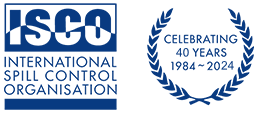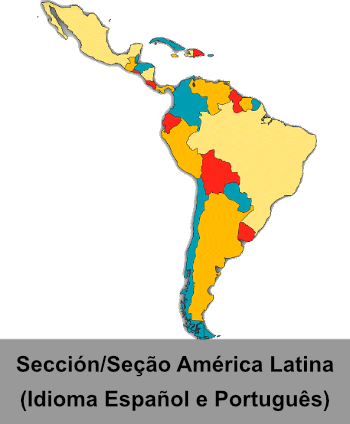Many ISCO members who have joined the organization in recent times are not fully aware of ISCO’s history, its mission, its objectives and the initiatives it is pursuing. This article aims to correct this situation.
Before the supertanker Torrey Canyon ran aground on the coast of Cornwall in 1967, oil pollution was not something to which people gave much thought. This event, which resulted in a spill of 120,000 tons of crude oil, was widely regarded as the world’s first major marine oil spill, polluting many hundreds of miles of the coast of the UK and France and causing severe environmental damage.
The incident was a wake-up call, demonstrating how poorly the world was prepared to respond to such an event. The event was also the catalyst that led to the development of the oil spill control industry.
Over the following years governments and private companies carried out research and development programmes to create capability to respond to major oil spill events. On the international front the International Maritime Organization enacted measures, the most important of which was the 1973 International Convention for the Prevention of Pollution from Ships (MARPOL).
It was ten years later, in 1983, that representatives of the US, British, French and Swedish spill control associations (SCAA, BOSCA, SYCOPOL and SWEMARPOL) met at the International Oil Spill Conference (IOPC) in San Antonio, Texas to discuss the formation of the International Spill Control Organization (ISCO).
The organisation was incorporated in London the following year as a not-for-profit international organisation with clearly defined objectives which included promotion of international co-operation and practical support for implementing OPRC and other relevant IMO conventions. Further meetings took place over the next ten years in Aberdeen, London, Tampa, Valetta, and Long Beach. Practical outcomes included positive contributions to international co-operation during the Exxon Valdez spill (1989) and Gulf War pollution (1991). but eligibility for membership of ISCO was restricted to national associations, of which only a very few exist.
This membership restriction was seen as incompatible with recognition that the fulfilment of ISCO’s objectives depended on involvement of both public and private sector working together in a co-operative way. Membership of ISCO was opened up to all entities, public and private, as well as private individuals with a legitimate interest in furthering the objectives of the organisation.
This major change was made in 2005 when ISCO was re-launched at IOPC, Miami in 2005. Virtually all of ISCO’s original objectives were retained including ISCO’s Mission “to raise worldwide preparedness and co-operation in response to oil and chemical spills; to promote technical development and professional competency; and to provide a focus for making the knowledge and experience of spill control professionals available to IMO, UNEP, and other organisations”.
At the same time the ISCO Council was established as a non-executive body composed of national representatives of ISCO in various countries. ISCO Council Members are consulted by the ISCO Executive Committee on policy matters, have represented members in their countries, providing an interface between ISCO and national governments and other in-country organisations, and helping to advance ISCO objectives in their countries. Over the years, Members of ISCO Council have organised in-country meetings, recruited new members, and have promoted ISCO at conferences and workshops.
In its Constitution, revised in 2005, ISCO’s aims and objectives included a commitment to the International Spill Accreditation Association (ISAA) – “To support the work of the International Spill Accreditation Association (ISA) in raising professional standards in the spill response industry” – This being seen as being closely aligned with ISCO’s aim to promote technical competency. For ten years from 2007 until 2017 ISCO operated the administration function for ISAA and continues to be represented on the ISAA Supervisory Board.
ISCO grew rapidly and soon had an international membership in about forty countries (now 52). Members include many of the major response organisations, equipment manufacturers and many individual professionals; also training providers, consultants, academia, government agencies, and others with a professional interest in spill control.
For the convenience of members ISCO’s Annual General Meetings are arranged to coincide with major international conferences. Over the years since 2005, AGMs venues have included Miami (USA), London (UK), Savannah (USA), Marseille (France), Portland (USA), Cairns (Australia), Amsterdam (The Netherlands), and Long Beach (USA). Members unable to attend AGMs are able submit their proxy votes via email on matters covered in the meeting agendas which distributed to all members.
The organisation provides significant benefits for its members. In addition to being part of a worldwide community of professionals who share a common interest, members receive a weekly newsletter that keeps them up-to-date on events, developing technologies, new legislation and other items of mutual interest. They are alerted to opportunities for providing new products and services necessary for implementing legislation and meeting new challenges. Most importantly, ISCO is a source of practical help in building response capacity and enhancing professional competency. The Technical and Reference pages in the members’ area of the ISCO website is a valuable and growing resource.
In 2007 ISCO was granted Consultative Status at the International Maritime Organization (IMO) and is the only such organisation representing the spill response industry. Members now have a voice in the drafting of legislation, rules and guidelines that impact on their interests.
Since 2007 ISCO has been an active contributor to IMO’s Marine Environment Protection Committee (MEPC) and its OPRC-HNS Technical Group. Presentations made have included recommendations regarding –
- Collation of Information on HNS response and Sub-Sea Oil recovery;
- Discharge of Settled-out Water during Oil Spill Recovery Operations;
- Independent Training and Accreditation of Private Oil and HNS Spill Response Contractors;
- Knowledge-based response planning for marine incidents
- A New Chemical Spill Response Manual
- The New International and USA Response Contracts (RESPONSECON)
In 2013 ISCO introduced new classes of professional membership that recognise the qualifications and experience of spill responders and others in the international spill response community.
ISCO President David Usher said “This fills a long felt need and will help meet the aspirations of many in the industry who have long felt that their qualifications and experience should be recognised. The creation of professional memberships will encourage all who are making a career in the field of oil and chemical pollution control to take pride in their chosen profession”.
The key word is “professional” when applied to men and women who are making a success in their careers and have the necessary levels of knowledge and expertise. Professional recognition is a visible mark of quality, competence and commitment, and can offer a significant advantage in today’s competitive environment.
Students, apprentices and trainees can join ISCO as student members and pursue a career development path that, as qualifications and experience are gained, can lead to eligibility for Associate Membership (AMISCO), Membership (MISCO) and, eventually, Fellowship (FISCO). Academic qualifications are not a requirement if applicants can demonstrate the necessary levels of competence through their experience, skills and professional development.
In any major pollution event there are well established mechanisms for inter-governmental co-operation. ISCO provides a complementary facility for authorities and other entities to quickly access support from the private sector, assisting in the rapid sourcing of specialised know-how, equipment and materials. An example was during the Deepwater Horizon spill. The support provided by ISCO was personally acknowledged by the National Incident Commander, Admiral Thad Allen. Following on the more recent emergency in Bangladesh, the facility was further improved to help ensure rapid relay of requests for assistance to ISCO member companies interested in providing spill response support (see http://spillcontrol.org/emergency-assistance) ISCO was a significant contributor to the IMO working group working on the development of the International Offers of Assistance (IOA) Guidelines which have since been approved by IMO’s Marine Environmental Protection Committee (MEPC).
In 2009 ISCO launched its own weekly newsletter. Now with a mailing list of about 3,000 it is distributed as free email publication. At time of writing the newsletter is approaching its 700th issue and John McMurtrie continues as the Editor.
In 2014 ISCO was pleased to be awarded Observer Status with the International Oil Pollution Compensation Funds. The organization provides financial compensation for oil pollution damage that occurs in Member States, resulting from spills of persistent oil from tankers. ISCO regularly attends IOPC Funds meetings in London and provides technical advisory input.
In September 2014 ISCO held its first International Forum with the theme on response to spills involving sinking oils. The timing of the event, held in Detroit, USA, was particularly apposite with the current concern about spills of diluted bitumen. The forum was very successful thanks to a formidable array of first class speakers from government agencies, R&D organizations and industry. The quality of lively debate was first class. A policy of holding forums with foci on matters of special concern is something that should be in the interests of ISCO members and it is hoped to hold more events of this kind.
In a new development at ISCO’s 2015 AGM in Amsterdam a motion was approved that will help youngsters (and others) to “kick-start” their career development – lecturers at training establishments and relevant managers at companies that carry out their own internal training are invited to nominate candidates for a free one year trial student membership of ISCO.
Early in 2016, following on ISCO’s participation in a major exercise conducted by the North Pacific Coast Guard Forum (NPCGF) involving a simulated major pollution incident in Korean waters, ISCO’s Emergency Assistance facility was activated to ascertain response resources available from ISCO members. Several ISCO members responded, offering availability of equipment, personnel and specialist know-how.
In post-exercise discussion with ISCO Secretary John McMurtrie, the Korean Coastguard commented on the non-availability of an internationally available standard contract for mobilisation of spill response resources. ISCO followed up by initiating discussions with BIMCO and this led to the formation of a joint ISCO-BIMCO Working Group.
Following on this ISCO initiative a series of meetings were convened by ISCO and BIMCO, together with invited representatives from the International Group of P&I Clubs (IGP&I) and the International Salvage Union (ISU), also joined by ITOPF and SCAA. After several months of work and an extensive consultation process the end results were two new contracts – RESPONSECON (International) and RESPONSECON (USA).
During the IOSC in 2017, ISCO together with the Spill Control Association of America (SCAA) and the
Association of Petroleum Industry Co-operative Managers (APICOM) held a reception at which Tony Paulson of the West of England P&I Club introduced the new RESPONSECON (International and USA) contracts.
The new contracts were subsequently introduced at IMO and International Oil Pollution Compensation Funds (IOPC Funds). Good progress is being made with the adoption of the contracts by governments and industry.
At the 2017 AGM, held during the International Oil Spill Conference (IOSC) in Long Beach, California, the Secretary, John McMurtrie, retired from this position and Matthew Sommerville was formally appointed as his successor. The new Secretary gave a presentation to members, sharing his thoughts on the future development of the organisation.




